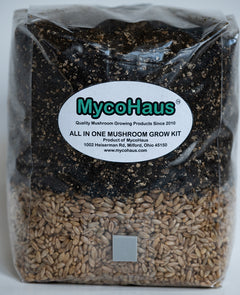Introduction
Mycology is the scientific study of fungi, a field full of exciting opportunities.
Fungi, which include organisms like mushrooms and molds, play a crucial role in balancing ecosystems, recycling nutrients, and even human health.
There are an estimated 5.1 million species of fungi on Earth, and there is still so much to learn about this diverse kingdom. In this article, we'll explore five of the top career paths in mycology and explain what they involve.

Mycological Researcher
What Do They Do?
A mycological researcher conducts in-depth studies on different fungal species.
They focus on understanding their ecology, genetics, physiology, and classification.
Using laboratory equipment, they perform experiments, analyze data, and share their findings through scientific publications.
They can work at universities, government agencies, or private companies involved in pharmaceuticals, agriculture, or biotechnology.
Education and Skills:
A Ph.D. in mycology or a related field is typically required.
Essential skills include strong analytical and problem-solving abilities, comprehensive knowledge of laboratory techniques, and excellent communication and writing skills for presenting research effectively.
Fungal Biotechnologist
What Do They Do?
Fungal biotechnologists harness fungi to develop new products or enhance existing ones.
They work in fields like food, medicine, agriculture, and biofuels.
Their work includes optimizing fungal growth conditions, genetically modifying fungi to produce specific compounds, and conducting experiments to assess the safety and effectiveness of products derived from fungi.
Required Education and Skills:
Generally, a Master's degree in biotechnology, microbiology, or a related field is required.
Essential skills include a solid understanding of molecular biology, genetics, and fermentation technology, as well as good organizational and project management skills.
Mushroom Cultivation Specialist
What Do They Do?
These specialists grow various mushroom species for consumption or medicinal purposes.
They optimize growing conditions, monitor the health of mushroom crops, and troubleshoot any issues.
They may work for commercial mushroom farms, start their own business, or offer consulting services to aspiring mushroom growers.
Required Education and Skills:
While a formal degree is not required, having knowledge and experience in mushroom cultivation is essential.
It's crucial to learn by reading books, attending seminars, or getting practical experience.
Good problem-solving skills, attention to detail, and an entrepreneurial spirit can be advantageous.

Environmental Mycologist
What Do They Do?
Environmental mycologists study how fungi interact with their surroundings.
They may investigate the roles of fungi in nutrient cycling, soil formation, or plant health.
They often work with ecologists, foresters, and soil scientists to address environmental issues like deforestation, soil degradation, or climate change.
Required Education and Skills:
A degree in environmental science, ecology, or a related field is generally required.
Strong knowledge of fungal ecology, statistics, and geographic information systems (GIS) is essential.
Good communication skills are also important for collaborating with multidisciplinary teams and communicating findings to the public or policymakers.
Mycological Educator
What Do They Do?
Mycological educators teach students about fungi, their importance, and their roles in various ecosystems.
They may work in schools, colleges, and universities, or offer workshops and seminars to the public.
Their duties include designing lesson plans, delivering lectures, and assessing student progress.
Required Education and Skills:
A degree in mycology, biology, or education is usually required.
Teaching experience and strong communication skills are essential.
A passion for educating others and the ability to present complex topics engagingly and understandably are also crucial.
Conclusion
Many career paths in mycology are available for those interested in the world of fungi.
Whether your interests lie in research, biotechnology, mushroom cultivation, environmental science, or education, there are various career paths in mycology to explore.
Each career path requires specific education and skills, but all contribute to expanding our knowledge and appreciation of these remarkable organisms.
FAQs
1. What is mycology? Mycology is the scientific study of fungi, which play a vital role in balancing ecosystems, recycling nutrients, and contributing to human health.
2. How do I become a mycological researcher? Becoming a mycological researcher usually requires a Ph.D. in mycology or a related field, strong analytical and problem-solving skills, and a deep understanding of laboratory techniques.
3. What does a fungal biotechnologist do? Fungal biotechnologists use fungi to develop or improve products for various industries like food, medicine, agriculture, and biofuels.
4. How can I become a mushroom cultivation specialist? A degree in agriculture, horticulture, or a related field is typically required, along with experience in mushroom cultivation and knowledge of fungal biology.
5. What is the role of an environmental mycologist? Environmental mycologists study the interactions between fungi and their surroundings and work with other scientists to address environmental challenges.



Leave a comment